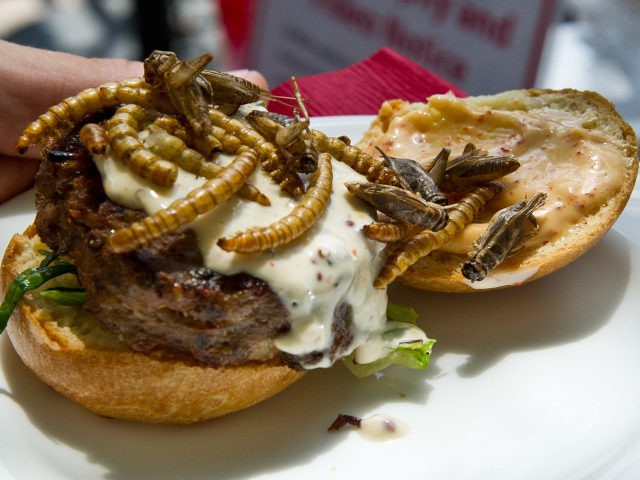Representatives from the European Union’s 27 member states have approved Tenebrio molitor beetle larvae, also known as mealworms, as “innovative” food and suitable for human consumption.
The ruling by the Standing Committee on Plants, Animals, Food and Feed (Novel Food and Toxicological Safety section) represents the next step in allowing people in the bloc to eat beetle larvae after the European Food Safety Agency (EFSA) said in January that yellow mealworms were safe to eat.
Outlining why Europeans might want to eat bugs, the European Commission said when it announced the decision: “The use of insects as an alternate source of protein is not new and insects are regularly eaten in many parts of the world.”
The EU’s executive arm explained that dried mealworms could be eaten “whole” in the “form of snacks” or as an ingredient in food. Agence France-Presse also suggested on Tuesday that they could be used in protein shakes or to make burgers.
The Commission went on to tout how eating bugs had “environmental benefits” and contributed to “sustainable diets”:
According to the FAO [the UN’s Food and Agricultural Organization], insects as food emerge as an especially relevant issue in the twenty-first century due to the rising cost of animal protein, food insecurity, environmental pressures, population growth and increasing demand for protein among the middle classes. Thus, alternative solutions to conventional livestock need to be found. The consumption of insects therefore contributes positively to the environment and to health and livelihoods.
FAO also indicates that insects are a highly nutritious and healthy food source with high fat, protein, vitamin, fibre and mineral content. Therefore, they are an alternative protein source facilitating the shift towards healthy and sustainable diets.
…
The environmental benefits of rearing insects for food are founded on the high feed conversion efficiency of insects, less greenhouse gas emissions, less use of water and arable lands, and the use of insect-based bioconversion as a marketable solution for reducing food waste.
Green Enforcer: MI6 Spying on Nations to Ensure They Abide by Climate Change Pledges, Chief Admits https://t.co/gcMndNJSyn
— Breitbart London (@BreitbartLondon) April 27, 2021
Clear labelling will be required, as those with allergies to dust mites, crustaceans, or the feed the beetle larvae eat — such as corn starch or brewer’s yeast — may have an allergic reaction.
The Commission is expected to formally adopt the decision in the coming weeks.
There are currently 11 more applications with the EFSA seeking approval for other insects to be suitable for human consumption. Breitbart London reported last year that some bugs that could land on Europeans’ plates include crickets, locusts, and grasshoppers.
The announcement by the EU comes as a poll of attitudes to becoming vegan found that most British men would rather die early than give up eating meat.
A OnePoll survey conducted for the campaign No Meat May and reported by The Mirror on Sunday found that two-thirds of men would rather die five to ten years early than stop eating meat.
One in ten said giving up meat would make them feel less masculine, with both men and women saying meatless diets were more feminine. More than one-third, 39 per cent, of women said they would not date a man if he were vegan.
One in 20 men also said they would rather go to prison than stop eating meat.
Delingpole: Climate Deaths ‘Will Be Worse than Covid’ Claims Mark Carney https://t.co/vvv6R2V0oB
— Breitbart London (@BreitbartLondon) February 11, 2021

COMMENTS
Please let us know if you're having issues with commenting.